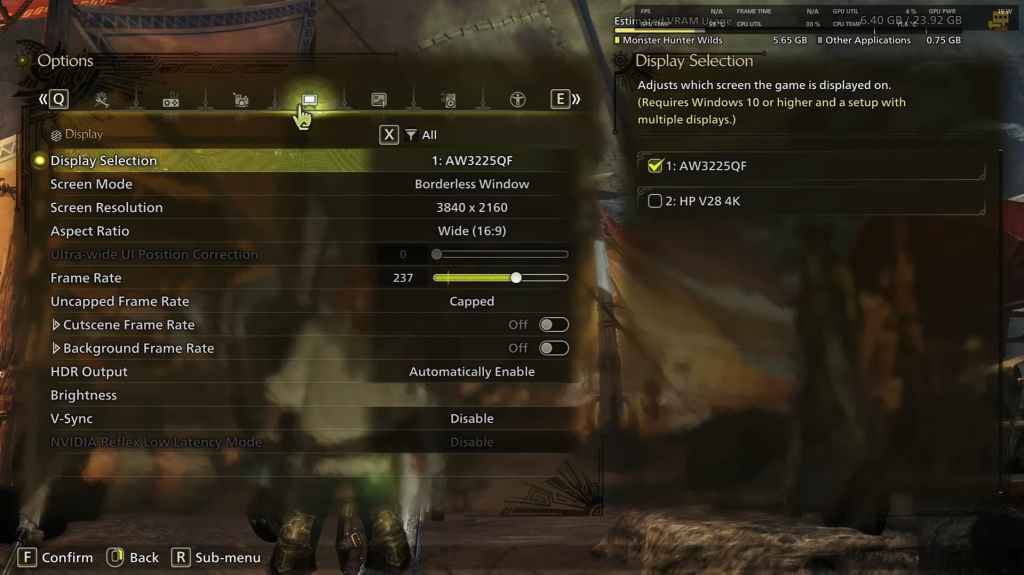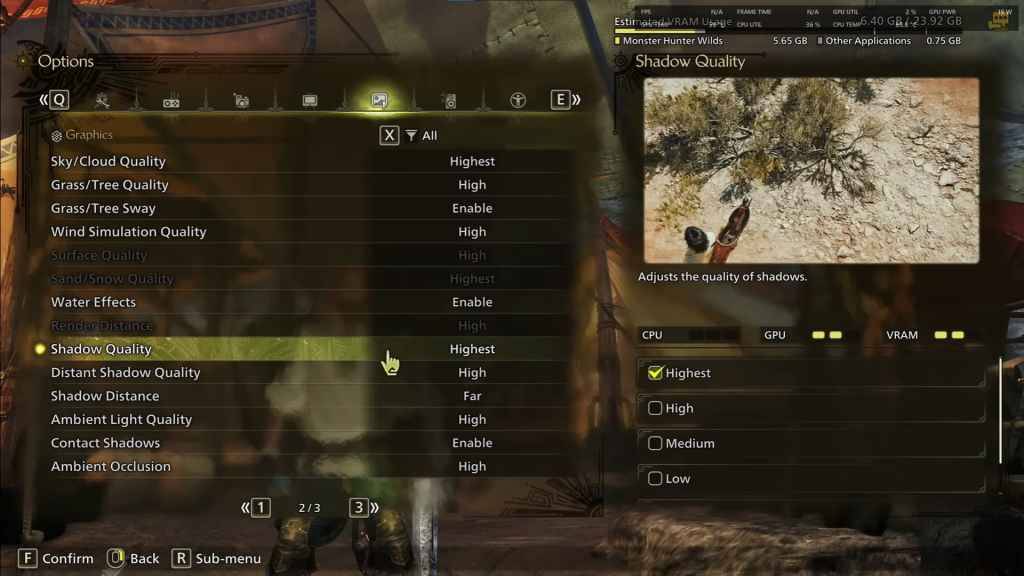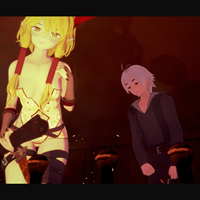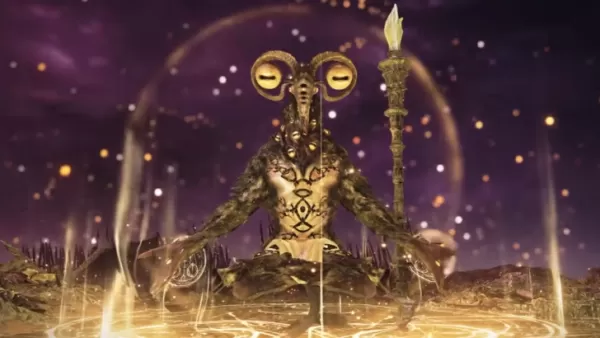Optimal Graphics Settings for Monster Hunter Wilds Revealed
*Monster Hunter Wilds* delivers breathtaking visuals, but achieving the perfect balance between performance and visual quality can be a challenge. Here's how to optimize your graphics settings for the best experience in *Monster Hunter Wilds*.
Monster Hunter Wilds System Requirements
To enjoy *Monster Hunter Wilds* at higher resolutions or on maximum settings, you'll need a robust GPU with ample VRAM and a powerful CPU. Here's a quick look at what you'll need:
| Minimum Requirements | Recommended Requirements |
| OS: Windows 10 or newer CPU: Intel Core i5-10600 / AMD Ryzen 5 3600 Memory: 16GB RAM GPU: NVIDIA GTX 1660 Super / AMD Radeon RX 5600 XT (6GB VRAM) DirectX: Version 12 Storage: 140GB SSD required Performance Expectation: 30 FPS @ 1080p (upscaled from 720p) | OS: Windows 10 or newer CPU: Intel Core i5-11600K / AMD Ryzen 5 3600X Memory: 16GB RAM GPU: NVIDIA RTX 2070 Super / AMD RX 6700XT (8-12GB VRAM) DirectX: Version 12 Storage: 140GB SSD required Performance Expectation: 60 FPS @ 1080p (Frame Generation enabled) |
Monster Hunter Wilds Best Graphics Settings
Whether you're equipped with a top-tier RTX 4090 or a more modest RX 5700XT, fine-tuning your graphics settings can significantly enhance your gameplay without sacrificing much visual quality. Here are the optimal settings to ensure a smooth and visually pleasing experience:
Display Settings

- Screen Mode: Choose based on preference, but Bordered Fullscreen is ideal if you frequently tab out.
- Resolution: Set to your monitor's native resolution.
- Frame Rate: Match your monitor's refresh rate (e.g., 144, 240).
- V-Sync: Turn off to minimize input lag.
Graphics Settings

| Setting | Recommended | Description |
| Sky/Cloud Quality | Highest | Enhances atmospheric detail. |
| Grass/Tree Quality | High | Affects vegetation detail. |
| Grass/Tree Sway | Enabled | Adds realism but may slightly impact performance. |
| Wind Simulation Quality | High | Improves environmental effects. |
| Surface Quality | High | Details on the ground and objects. |
| Sand/Snow Quality: | Highest | For detailed terrain textures. |
| Water Effects | Enabled | Adds reflections and realism. |
| Render Distance | High | Determines how far objects are rendered. |
| Shadow Quality | Highest | Improves lighting but is demanding. |
| Distant Shadow Quality | High | Enhances shadow detail at a distance. |
| Shadow Distance | Far | Controls how far shadows extend. |
| Ambient Light Quality | High | Enhances shadow detail at a distance. |
| Contact Shadows | Enabled | Enhances small object shadowing. |
| Ambient Occlusion | High | Improves depth in shadows. |
These settings prioritize visual fidelity, which is ideal since *Monster Hunter Wilds* isn't a competitive game. However, if you're experiencing poor frame rates, consider reducing Shadow and Ambient Occlusion settings first, as these are the most resource-intensive. Additionally, lowering distant shadows, shadow distance, water effects, and sand/snow quality can also help improve performance.
Best Settings for Different Builds
Not everyone has a high-end build capable of running games at 4K. Here are tailored settings for various hardware tiers to ensure smooth gameplay:
Mid-Range Build (GTX 1660 Super / RX 5600 XT)
- Resolution: 1080p
- Upscaling: AMD FSR 3.1 Balanced
- Frame Gen: Off
- Textures: Low
- Render Distance: Medium
- Shadow Quality: Medium
- Distant Shadow Quality: Low
- Grass/Tree Quality: Medium
- Wind Simulation: Low
- Ambient Occlusion: Medium
- Motion Blur: Off
- V-Sync: Off
- Expected Performance: ~40-50 FPS at 1080p
Recommended Build (RTX 2070 Super / RX 6700XT)
- Resolution: 1080p
- Upscaling: FSR 3.1 Balanced
- Frame Gen: Enabled
- Textures: Medium
- Render Distance: Medium
- Shadow Quality: High
- Distant Shadow Quality: Low
- Grass/Tree Quality: High
- Wind Simulation: High
- Ambient Occlusion: Medium
- Motion Blur: Off
- V-Sync: Off
- Expected Performance: ~60 FPS at 1080p
High-End Build (RTX 4080 / RX 7900 XTX)
- Resolution: 4K
- Upscaling: DLSS 3.7 Performance (NVIDIA) / FSR 3.1 (AMD)
- Frame Gen: Enabled
- Textures: High
- Render Distance: Highest
- Shadow Quality: High
- Distant Shadow Quality: High
- Grass/Tree Quality: High
- Wind Simulation: High
- Ambient Occlusion: High
- Motion Blur: Off
- V-Sync: Off
- Expected Performance: ~90-120 FPS at 4K (upscaled)
*Monster Hunter Wilds* offers a plethora of graphical options, but not all impact gameplay equally. If you're facing performance issues, consider lowering settings like shadows, ambient occlusion, and render distance. Budget users can leverage FSR 3 upscaling to boost frame rates, while high-end builds can handle 4K settings with frame generation.
For the best balance, aim for a mix of medium to high settings, enable upscaling, and adjust shadows and distance settings according to your hardware's capabilities.
And there you have it—the best graphics settings for *Monster Hunter Wilds* to ensure a stunning and smooth gaming experience.
*Monster Hunter Wilds* is now available on PlayStation, Xbox, and PC.




























